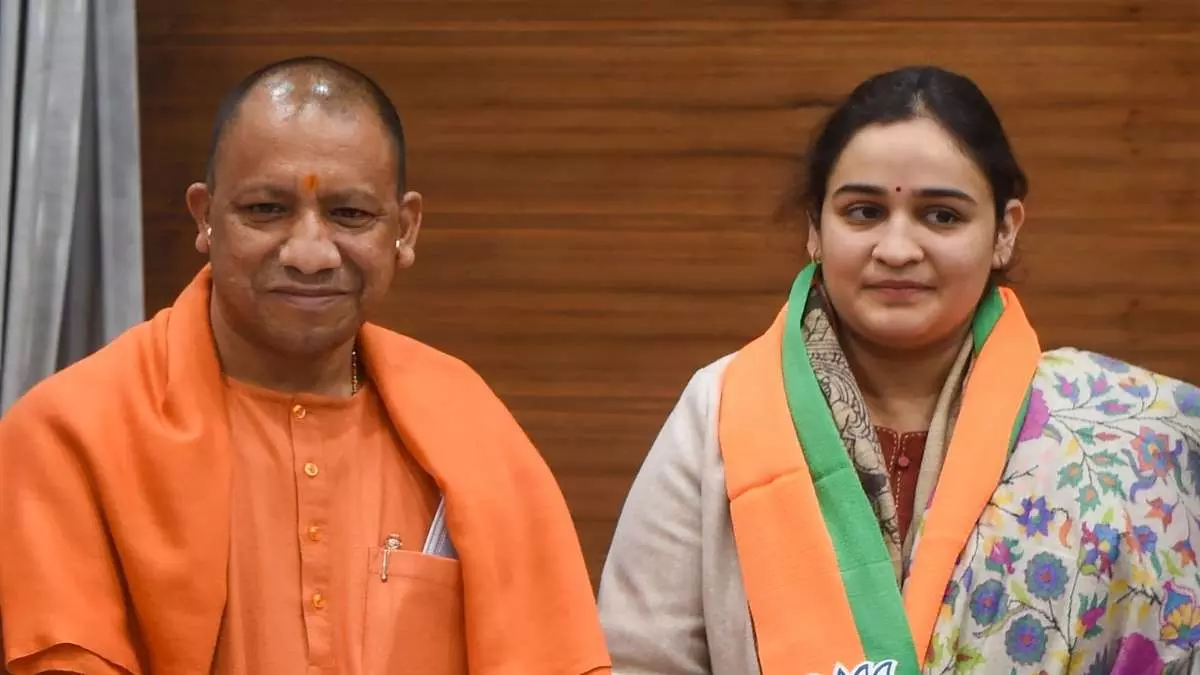
UP proposal to ban male tailors, barbers for women: Activists call move ‘political’
As UP Women’s Commission’s proposal to ban male tailors, barbers, and gym trainers for women stirs a row, activists feel it's unnecessary and 'politically motivated'

The Uttar Pradesh State Women’s Commission, led by Babita Chouhan, has proposed banning male tailors and barbers from serving female clients, arguing that this will help prevent potential "bad touch" incidents. The proposal also recommends that only female trainers be employed at women's gyms, with mandatory police verification for any male trainers. These recommendations have ignited a fierce debate regarding women's rights, safety, and employment discrimination.
Discussion on Capital Beat
In a recent episode of Capital Beat on The Federal, host Neelu Vyas moderated a panel discussion on the proposal, featuring voices from women’s rights activist Tahera Hasan, political analyst Siddharth Sharma, and senior journalist Sunita Aron. The panel raised critical questions about the practicality and motivations behind the proposal, as well as its broader social impact.
Scepticism
Senior journalist Sunita Aron was sceptical about the government's real intention and voiced concerns about the underlying motives behind the proposal. She suggested that it could be "politically motivated" and not really aimed at focusing on tangible solutions for women's safety. Aron also pointed out that such policies could negatively impact minority communities, where many tailors and barbers are employed, and further aggravate social divisions.
Women’s rights to autonomy
Women’s rights activist Tahera Hasan slammed the proposal as "restrictive and unnecessary", insisting that women should have the freedom to choose their service providers. She argued that rather than imposing bans, efforts should focus on enforcing laws against harassment and improving public safety.
Also Read: Tying saree tightly around waist can cause 'petticoat cancer' in women, warns study
Political strategy
Political analyst Siddharth Sharma agreed. He felt that the proposal may be more about appealing to specific voter bases rather than addressing real issues affecting women’s safety. He also noted that it can reinforce outdated gender stereotypes and deepen social divides, particularly between different socio-economic classes.
Practical difficulties
Critics also pointed out the practical challenges small business owners will face if they have to implement such a policy. The financial burden of hiring female staff may affect the viability of many small tailoring and barber businesses, without necessarily guaranteeing women’s safety.
Also Read: How the protest by Iranian woman who stripped is not just about bodily autonomy
Public response and path forward
As the proposal continues to generate heated discussions, critics argued that instead of restricting services based on gender, the government should focus on more substantial policy reforms, such as improving law enforcement and public safety measures. Many believe that fostering respect and equality between men and women is key to creating a safer and more inclusive society.
The backlash to the proposal seems to be growing. Now the question remains whether the government’s response to the proposal will determine whether such restrictive measures will become law or if they will pursue alternative solutions to women's safety.
(The content above has been generated using a fine-tuned AI model. To ensure accuracy, quality, and editorial integrity, we employ a Human-In-The-Loop (HITL) process. While AI assists in creating the initial draft, our experienced editorial team carefully reviews, edits, and refines the content before publication. At The Federal, we combine the efficiency of AI with the expertise of human editors to deliver reliable and insightful journalism.)

